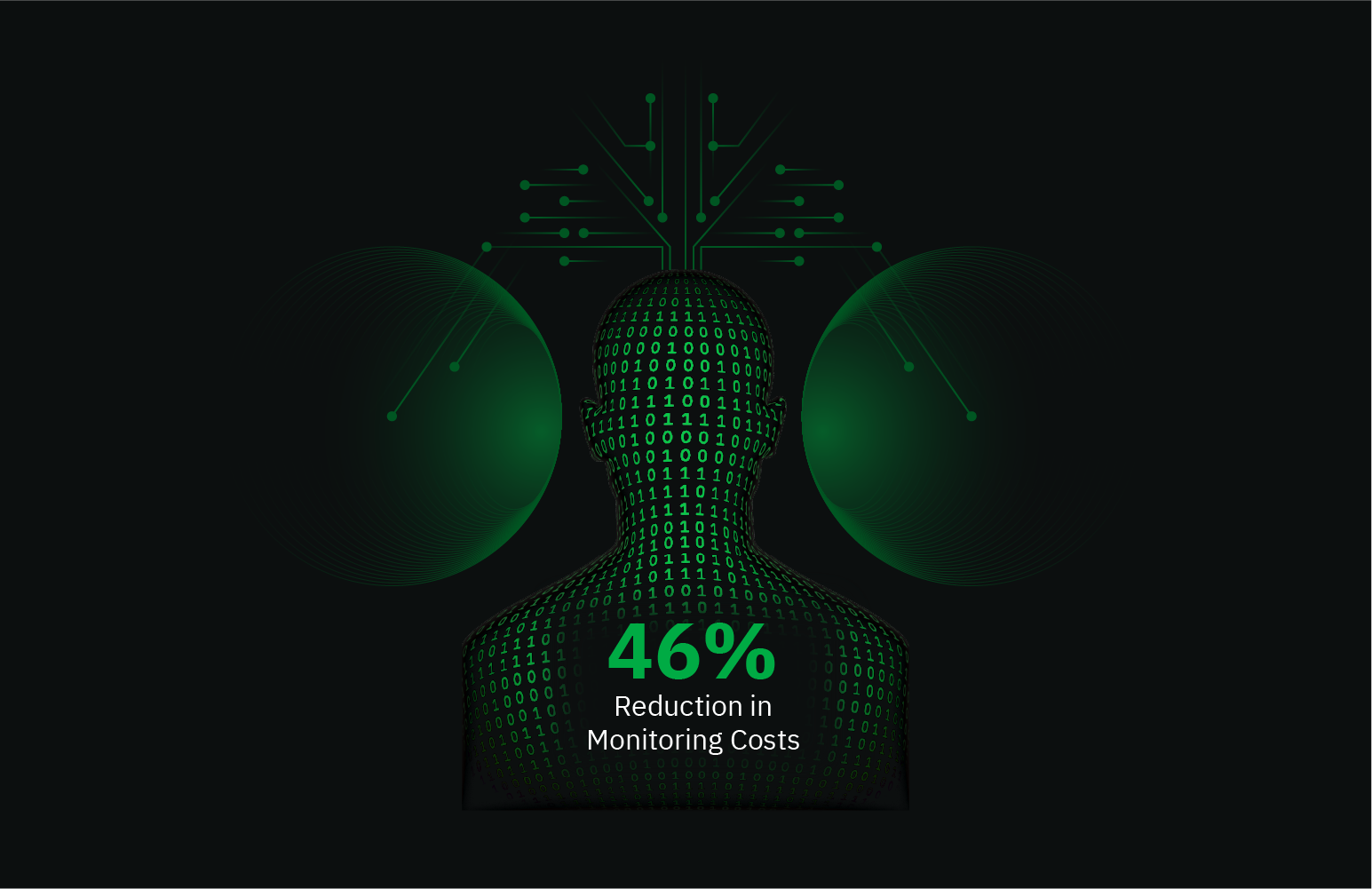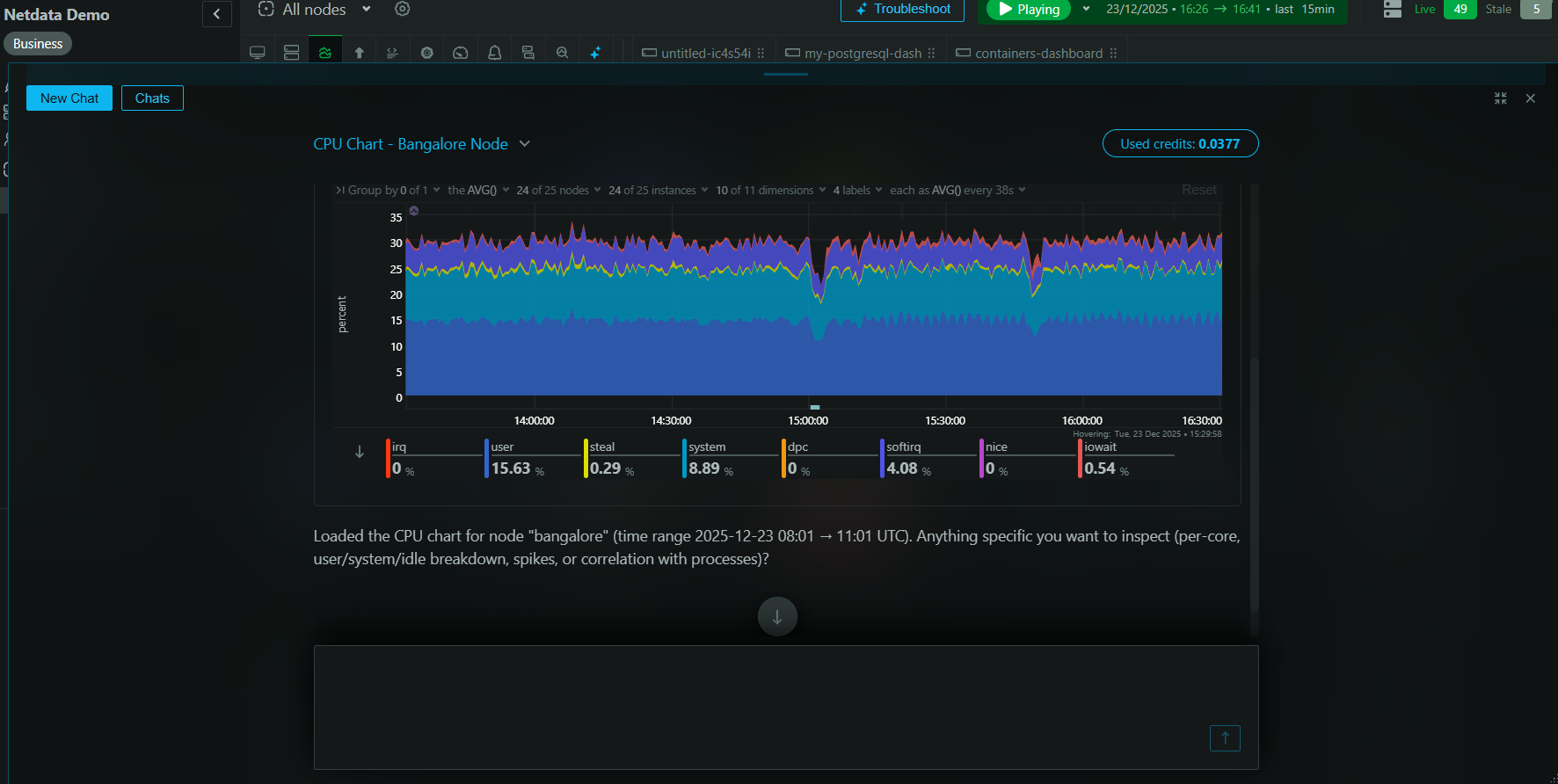Ceph Monitoring
What Is Ceph?
Ceph is a distributed storage system designed to provide excellent performance, reliability, and scalability. It achieves this by distributing data across multiple storage devices and ensuring data redundancy. As an open-source project, Ceph has become a popular choice for managing petabytes of data because of its self-healing and self-managing capabilities.
Monitoring Ceph With Netdata
Monitoring Ceph clusters effectively is crucial to maintaining their optimal performance and ensuring data availability. Netdata offers a comprehensive Ceph monitoring tool that provides real-time insights into your Ceph infrastructure. By using Netdata’s collector for Ceph, you can access granular metrics for your entire Ceph cluster, including individual Pools and OSDs.
Why Is Ceph Monitoring Important?
Monitoring Ceph is vital because it allows administrators to keep track of storage utilization, detect performance bottlenecks, and ensure the data integrity of the cluster. It also plays a critical role in disaster recovery, enabling quick identification of failed components or anomalies within the system.
What Are The Benefits Of Using Ceph Monitoring Tools?
Utilizing tools for monitoring Ceph, such as Netdata, provides several benefits. These include:
- Real-time monitoring: Continuous insights into your Ceph environment.
- Scalability: Handle virtually unlimited storage growth without losing insight.
- Flexibility: Customizable alerts and dashboards tailored to your specific needs.
- Troubleshooting and root cause analysis: Quickly pinpoint issues within your infrastructure.
- Comprehensive integration: Seamlessly integrate with other monitoring solutions for a holistic view of infrastructure health.
Understanding Ceph Performance Metrics
When you monitor Ceph with Netdata, it’s essential to focus on several key metrics to ensure the healthy status of your clusters:
Ceph Cluster Metrics
- Ceph Cluster Status: Monitors the overall health status of the cluster.
- Ceph Cluster Hosts: Total number of host nodes in the cluster.
- Ceph Cluster Monitors: Number of active and waiting monitor nodes.
- Ceph Cluster Physical Capacity Utilization: Indicates how much total storage space is being used vs. available.
Ceph OSD Metrics
- Ceph OSD Status: Tracks the “up/in” status of OSDs.
- Ceph OSD Space Usage: Shows how much space is available and used on each OSD.
Ceph Pool Metrics
- Ceph Pool Space Utilization: Percentage of space used within a pool.
- Ceph Pool IO: Data read and write rates for pools.
A tabular representation of these metrics can offer an easy-to-understand view of your Ceph cluster’s performance:
| Metric Name | Description |
|---|---|
| Cluster Status | Overall status of the Ceph cluster |
| OSD Status | Up/in status of the OSDs |
| Pool Space Usage | Space utilization percentage of the pool |
Advanced Ceph Performance Monitoring Techniques
Advanced techniques for monitoring Ceph involve correlating metrics across different domains, enabling predictive analysis, and setting automated responses to certain alerts. Using Netdata’s auto-recognition capabilities provides seamless monitoring with minimal setup.
Diagnose Root Causes Or Performance Issues Using Key Ceph Statistics & Metrics
Netdata’s user-friendly dashboards allow you to drill down into precise metrics such as IOPS, latency, and cluster usage, facilitating the identification of performance issues’ root causes. By monitoring trends over time, you can predict potential issues before they escalate.
View Netdata Live to see it in action here, or Sign up for a Free Trial to start monitoring your Ceph cluster today.
FAQs
What Is Ceph Monitoring?
Ceph monitoring refers to the continuous observation and analysis of a Ceph cluster’s performance and health metrics to detect issues and optimize its functioning.
Why Is Ceph Monitoring Important?
Ceph monitoring is important to maintain high availability and data integrity, identify bottlenecks and failures, and ensure that the system performs optimally.
What Does A Ceph Monitor Do?
In Ceph, monitors are responsible for maintaining maps of the cluster state, including OSDs, placement groups, and enforced policies, ensuring consistent and reliable data storage.
How Can I Monitor Ceph In Real Time?
You can monitor Ceph in real-time using Netdata’s comprehensive dashboards that provide instant visualization of all critical metrics, helping you react promptly to any issues. You can access the Live Demo here.









